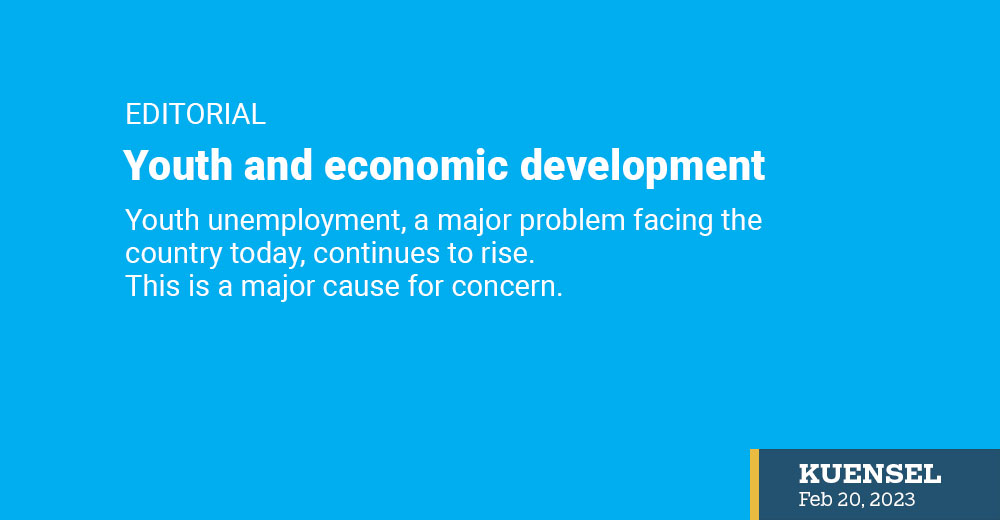Youth unemployment, a major problem facing the country today, continues to rise.
This is a major cause for concern.
Last year, the youth unemployment figure rose by 7.7 percent from the previous year—8,496 young “are” actively seeking employment.
The rising unemployment situation in the country is directly linked to the health of the country’s economy. This is basic economics. In other words, when we do not invest heavily in the sectors that can create employment and depend more on imports, the country’s economy goes down.
When the country’s economy goes down, there is no job creation. Without investment and healthy environment for innovation, there will not be growth in the economy.
According to the latest National Labour Force Survey Report, the youth unemployment rate has fluctuated over the period of six years, with the highest in 2022. This is a no-brainer. When the pandemic hit the country, foreign travel was blocked. Had it not been the case, unemployment as defined by the report would have been by far less.
Of the total 484,965 working-age population, the share of youth unemployed to the total unemployment in the country is 46.7 percent, indicating that for every 100 unemployed persons, there is about 47 unemployed youth.
What is more concerning is that of the total employed persons in the country, the highest is in the agriculture sector (43.5 percent), and the lowest is in the industry sector (13.7 percent).
Going by the report, which shows that the highest unemployment rate is among the Bhutanese population with higher secondary (18.0 percent), followed by bachelor’s degree (15.0 percent), and middle secondary (8.2 percent), there is a need to reprioritise development, at least in the short term.
The concern today is that more than half the country’s population could leave the country in search of employment.
Small is beautiful, E F Schumacher said, but our smallness is a burden—we have not been able to invest meaningfully in “appropriate technologies, policies, and polities as a superior alternative”.
Private sector development to create jobs will not work so long as our focus remains on the development of the civil service sector. Yes, the civil service sector must be improved to reduce bureaucratic red tape, but the private sector should get a major boot so that it becomes a fecund ground for innovation and job creation.
There will not be job creation without innovation. Simply put, innovation can contribute a lot more to reducing imports and addressing the country’s negative balance of payment.
The really question is: ” Why is agriculture, Bhutan’s mainstay, still languishing?


